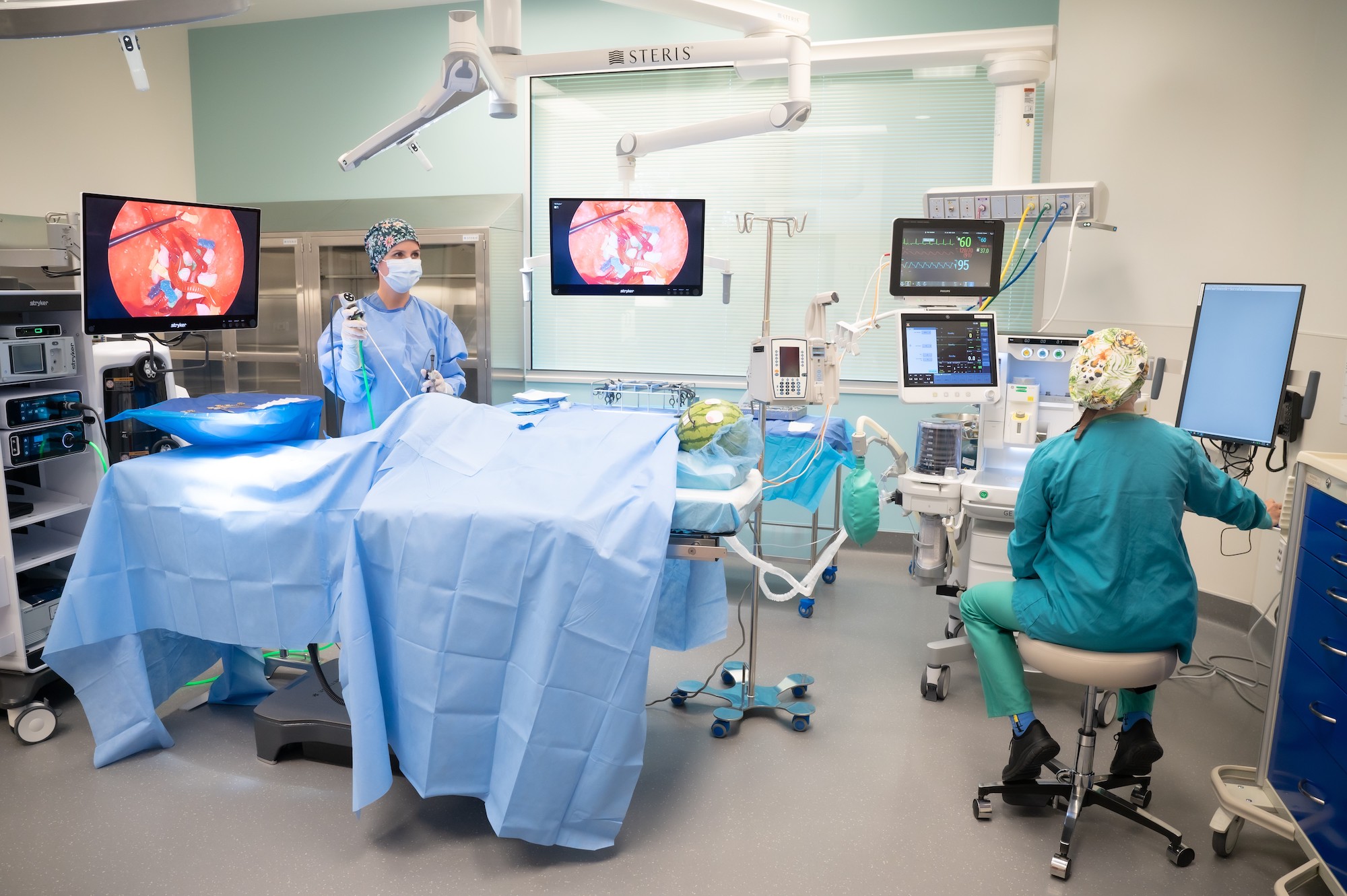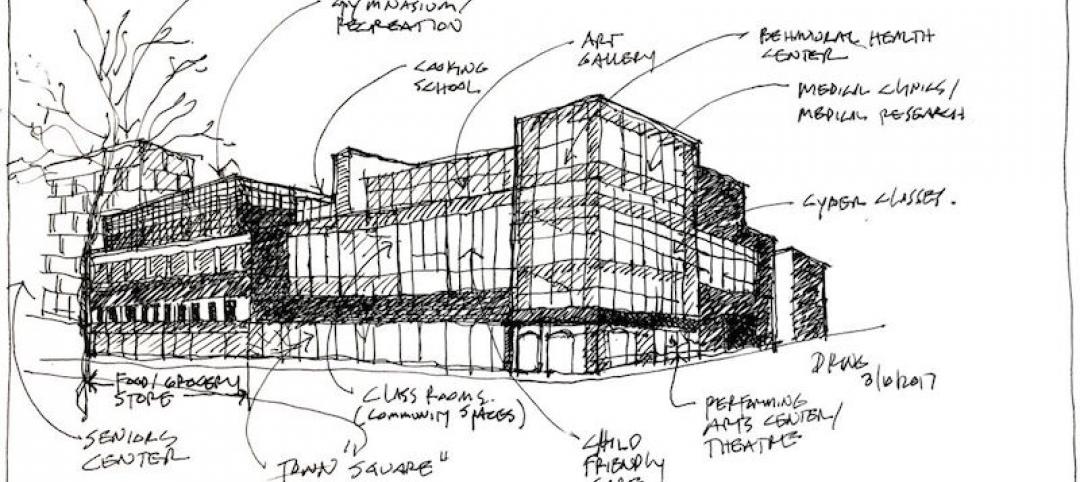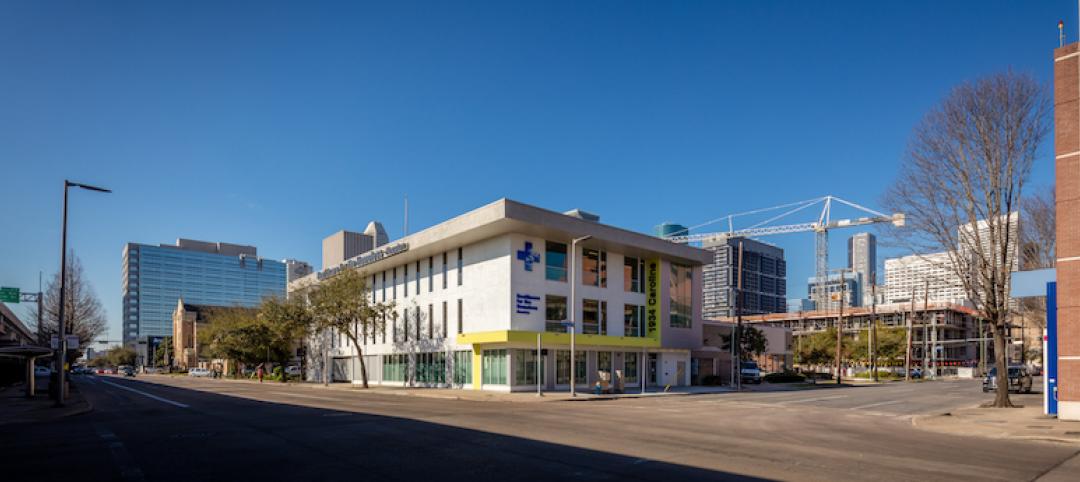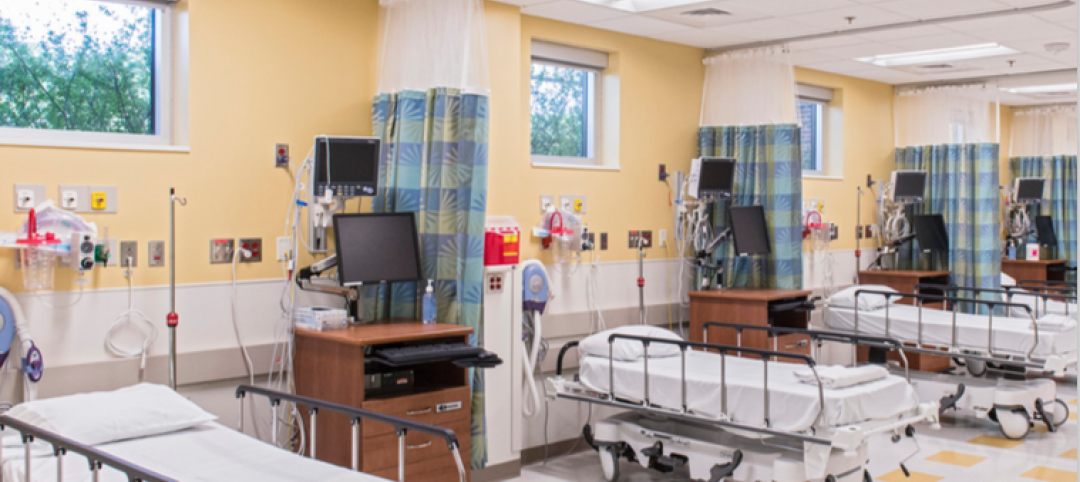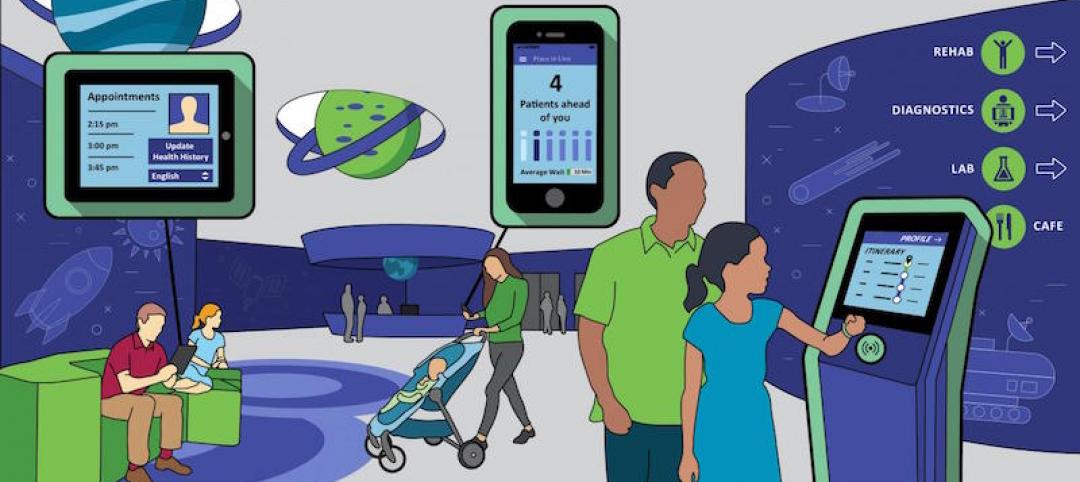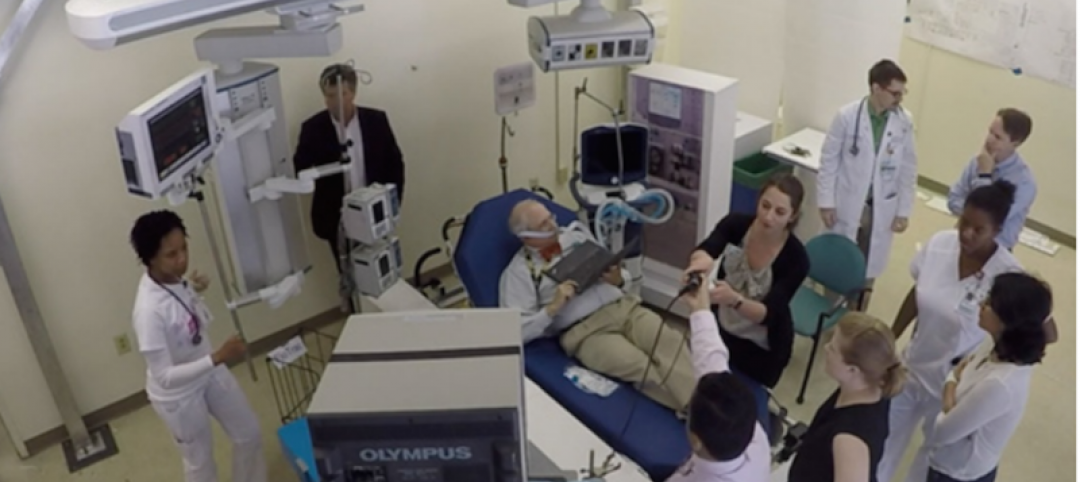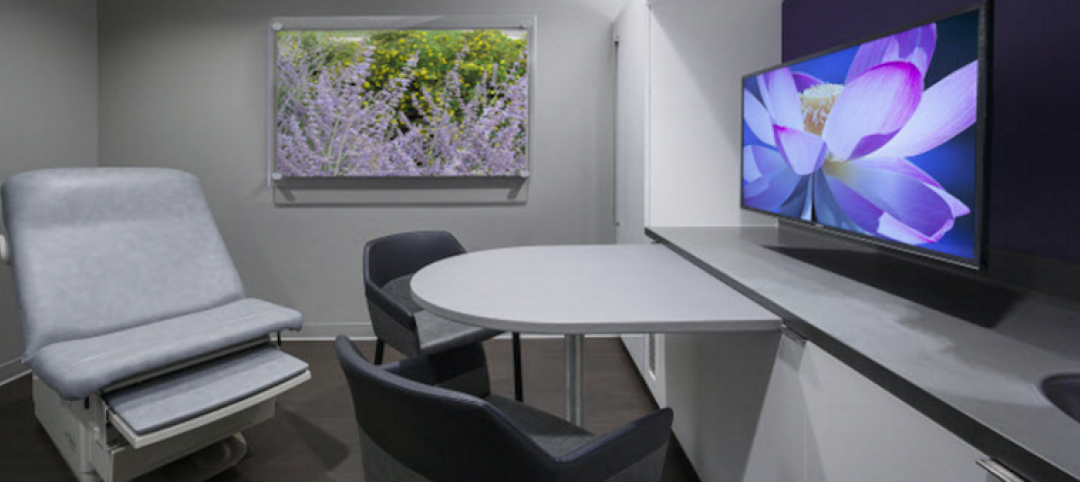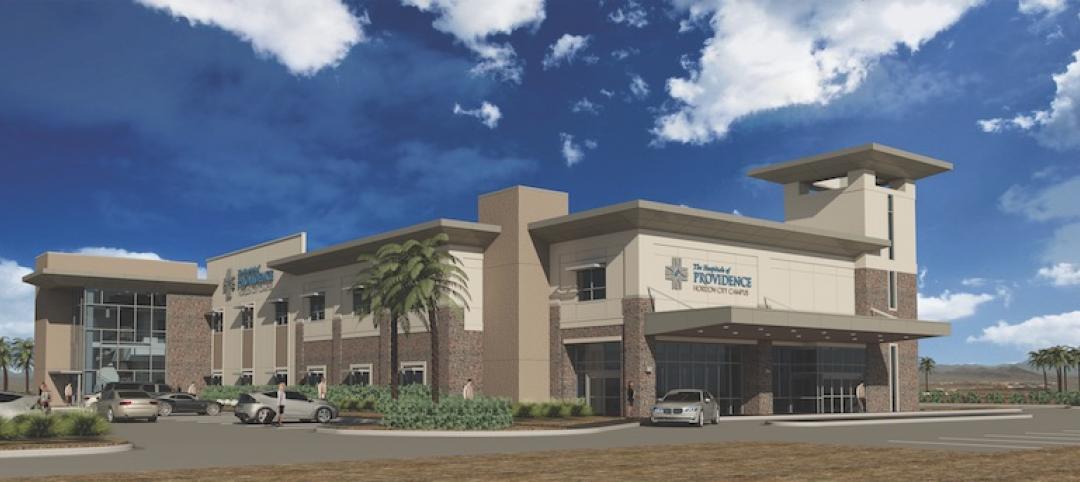Sutter Health’s Samaritan Court Ambulatory Care and Surgery Center (Samaritan Court), a three-story, 69,000 sf medical office building, was recently completed three months early and $3 million under budget, according to general contractor Skanska.
The project “marks the first time a general contractor has collaborated seamlessly with all trade partners (mechanical, electrical, plumbing, framing, and drywall) on layout strategy and responsibilities simultaneously,” Skanska says.
The accomplishment was aided by Dusty Robotics, a robot tool that its manufacturer says, “allows project teams to dramatically reduce schedule time and rework costs through accurate, full-scale floor layout.” Skanska worked with trade partners specializing in mechanical, electrical, plumbing, framing and drywall, to develop a combined layout plan in a “first-of-its-kind collaboration and implementation of Dusty Robotics.”
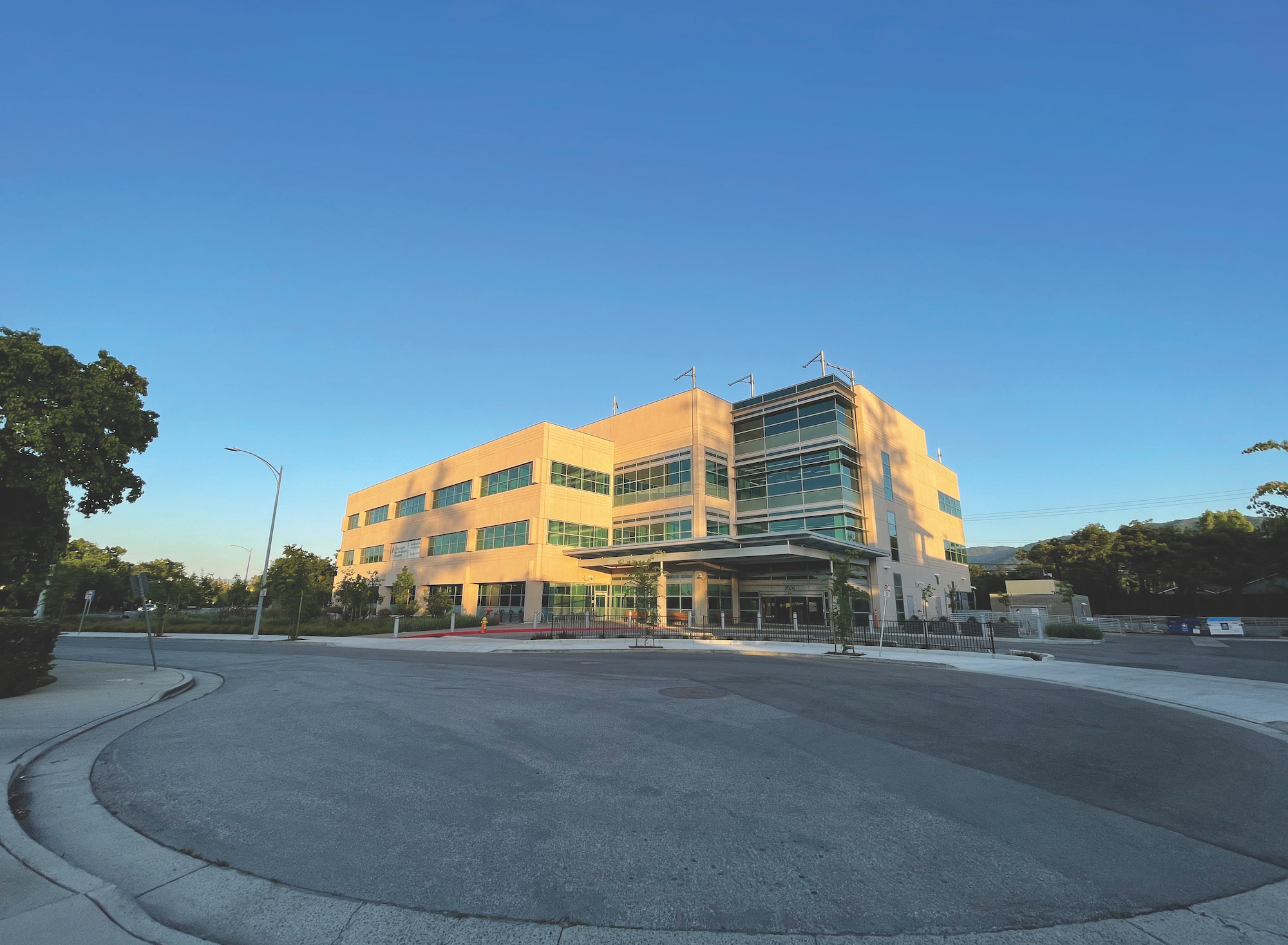
The project team also used a virtual punch list and Takt Planning, starting punch list activities during the design and preconstruction phases rather than in the closeout phase. The team focused on where improvements could be made to cut rework in half in comparison to projects of similar size and complexity.
The virtual punch list allowed each stakeholder to review final conditions—furniture, casework and equipment placement, ADA clearances, device and outlet alignment, utility connections, and item placements that would require unique finish details—in the building model. This allowed the team to achieve its goal of cutting rework by 50% on the project.
The design team strove for a warm, timeless, easy-to-maintain, and inviting space by incorporating warm woods, recessed modern lighting, natural stone, and visually stimulating wayfinding graphics. Wayfinding throughout the building used imagery of local flora and fauna elemental themes assigned to each floor, such as water, pebbles, and trees. Natural element-themed graphics were assigned to each medical practice to create an intuitive orientation in the building.
Located near the border of San Jose and Los Gatos, Calif., the building aims for patient-centered care. Design highlights include:
- Single entry/exit for patients, promoting clear wayfinding
- Centralized reception areas for upper floors at patient entry points
- Centralized waiting spaces on upper floors to allow a variety of clinical services to share seating and maximize efficiency for staff movement
- Localized departments to achieve the greatest operational efficiency for the best patient care with ease of access to core modalities including Diagnostic Imaging and Laboratory Services
- Departmental adjacencies to share point-of-care rooms and support spaces between clinic modules and services
- Locating of the surgery center on the first floor for ease of patient access and discharge
- Orientation of patient care and recovery rooms toward pleasant views of the natural environment to encourage patient recovery
On the project team:
Owner and/or developer: Sutter Health
Design architect: Boulder Associates
Architect of record: Boulder Associates
MEP engineer: Southland Industries (mechanical, plumbing); Prime Electric (electric);
Structural engineer: Miyamoto
General contractor/construction manager: Skanska

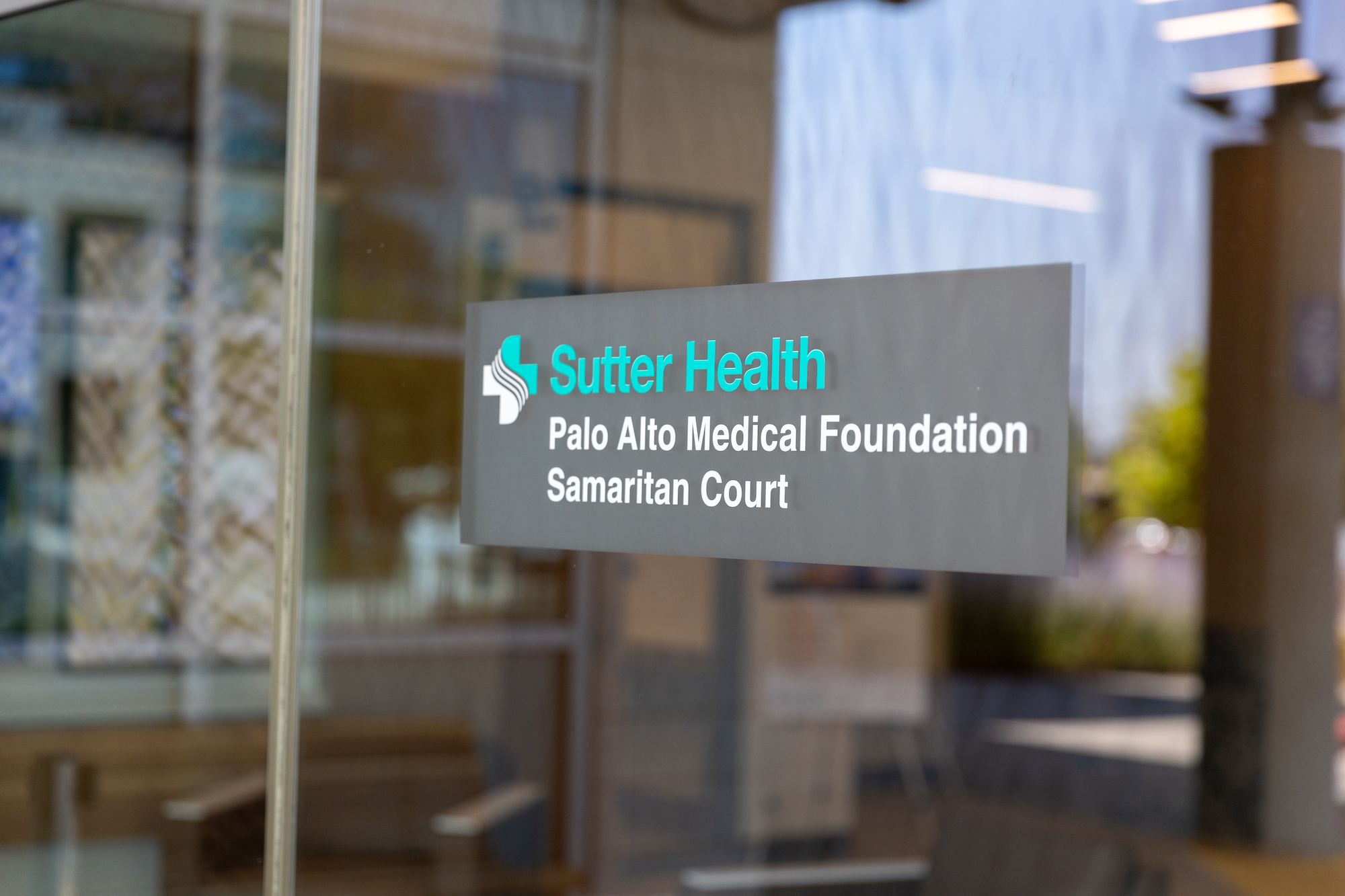
Related Stories
Healthcare Facilities | Apr 11, 2017
Today’s community centers offer glimpses of the healthy living centers of tomorrow
Creating healthier populations through local community health centers.
Healthcare Facilities | Apr 2, 2017
Comfort and durability were central to the design and expansion of a homeless clinic in Houston
For this adaptive reuse of an old union hall, the Building Team made the best of tight quarters.
Healthcare Facilities | Mar 31, 2017
The cost of activating a new facility
Understanding the costs specifically related to activation is one of the keys to successfully occupying the new space you’ve worked so hard to create.
Sponsored | Healthcare Facilities | Mar 29, 2017
Using Better Light for Better Healthcare
Proper lighting can improve staff productivity, patient healing, and the use of space in healthcare facilities
Healthcare Facilities | Mar 29, 2017
Obamacare to Republicare: Making sense of the chaos in healthcare
With a long road of political and financial uncertainty ahead for the healthcare sector, what does this mean for the nonresidential construction industry’s third-largest sector?
Healthcare Facilities | Mar 24, 2017
5 insights for designing a human-centered pediatric experience
Pediatric experience design must evolve beyond the common mantra of “make it fun” or “make it look kid-friendly.”
Healthcare Facilities | Mar 3, 2017
CBRE: Developing a total project budget for a healthcare capital project
Successfully developing a complete and well thought out Total Project Budget is perhaps the most important task you’ll perform in the initial phase of your project.
Healthcare Facilities | Feb 26, 2017
A Georgia Tech white paper examines the pros and cons of different delivery systems for ICUs
It concludes that a ceiling-mounted beam system is best suited to provide critical care settings with easier access to patients, gases, and equipment.
Healthcare Facilities | Feb 24, 2017
The transformation of outpatient healthcare design
Higher costs and low occupancy rates have forced healthcare facilities to rethink how healthcare is delivered in their community.
Healthcare Facilities | Feb 7, 2017
Microhospitals: Healthcare's newest patient access point
Microhospitals are acute care facilities that are smaller than the typical acute care hospital. They leave complex surgeries to the big guys, but are larger and provide more comprehensive services than the typical urgent care or outpatient center.


